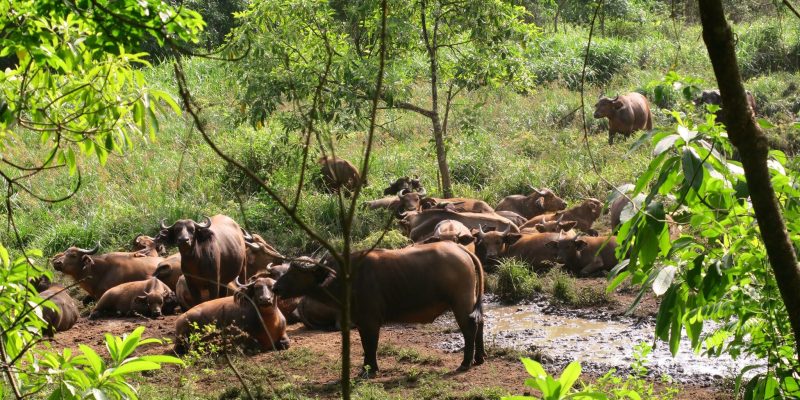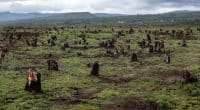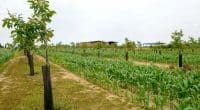The 2023 annual count in the Chinko biodiversity reserve in the Central African Republic (CAR) reveals an increase in wild animal populations, marking a positive trend for biodiversity conservation in the region.
Since 2012, the Chinko team has been conducting annual wildlife track counts, a method of estimating species populations and trends in the reserve. Recent results show that populations of large carnivores and herbivores have stabilised or even increased. For example, the number of leopard tracks rose from 2.8 per 100 km in 2020 to 6.2 in 2023, while buffalo tracks increased from 10.3 to 22.9 per 100 km over the same period.
The partnership between the Central African government and African Parks to manage the Chinko Biodiversity Reserve has been crucial to this progress. Joint efforts to protect the reserve, work with local communities and combat poaching have created one of the most stable environments in the region. In 2020, this agreement was renewed for a further 25 years, bringing the area under management to over 64,300 km².
Today, the Chinko Reserve is home to a wide variety of species, including elephants, lions, mongooses, primates and over 100 species of birds. Despite persistent challenges such as poaching and mining, the area retains potential for the recovery of wildlife populations.
Read also-COP28: commitments of $1.7 billion in favour of biodiversity by 2025
However, a recent assessment in the north of the Central African Republic (CAR) reveals a bleaker picture. Wildlife populations in this region have been severely affected by armed conflict and poaching, with dramatic declines observed since 2005. The plundering of natural resources, including mining and wildlife trafficking, remains a major concern.
Concerted efforts are needed to protect wildlife and local communities in the region. Robust conservation measures and cross-border cooperation are essential to ensure a sustainable future for the Central African Republic’s biodiversity.
Boris Ngounou






